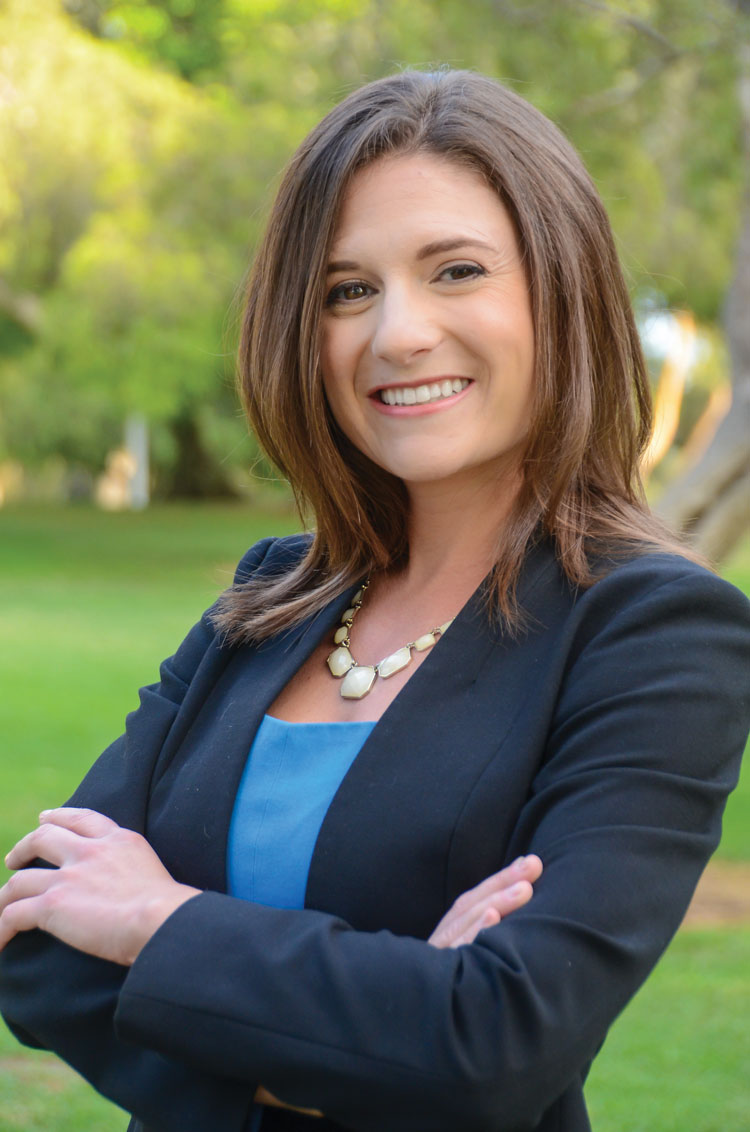San Diego attorney and clinic founder helps human trafficking victims rebuild their lives

Shutterstock
Like most lawyers, Jamie Quient has heard how building a network is key to getting business referrals, learning the quirks of opposing counsel, or hearing insightful tidbits about courtroom conduct.
But for Quient, networking holds the key to a more basic need: survival. As founder and president of the Free to Thrive legal clinic in San Diego, she helps human trafficking victims who are struggling to break from their traffickers and rebuild their lives.
Quient uses her networking skills to get her clients access to safe housing, drug treatment programs and job training.
“My clients are the strongest, most resilient and determined women that I have ever met in my entire life,” says Quient, an ABA member since 2012. “They have complex needs that extend far beyond their legal needs.”

Quient’s typical day is spent traveling through San Diego County in her mobile office: a Prius equipped with her laptop, a Wi-Fi hot spot, a briefcase filled with legal forms, and a blanket and pillow.
Her clients often are traumatized, she says, so “the blanket and pillow can make a client feel safe and comfortable.”
Safety, housing and therapy are the first needs that have to be filled, she says. “We look at all their needs and basically triage and prioritize them,” she says. “We can’t work on their legal needs if they’re not safe.”
This is particularly an issue with Quient’s clients who are serving jail terms. They often have no place to go when they are released.
“If they get out and their situation is unstable, they’re likely to go back to their trafficker,” she says.
That’s where her networking pays off. Quient is in constant contact with community partners who run residential treatment programs because she knows space is in tight demand.
“I want my clients to be first in line to get those spots when they open up,” she says. “If I can bring them from jail to a safe environment, it gives them a greater likelihood for success when they get out.”
RESTORING RECORDS

Photograph of Jamie Quient by Robert Hubbard.
Quient’s passion for her work began when she was a board member of the Lawyers Club of San Diego and served as president for the 2016-2017 term. The association founded the Human Trafficking Collaborative with the aim of bringing together the legal profession and the broader community to address trafficking and support survivors.
Quient, who was a civil litigator with Procopio, Cory, Hargreaves & Savitch based in San Diego, immersed herself in training and began representing clients on a pro bono basis. She started advocating for legal reform when she learned of the setbacks experienced by one client who was sexually exploited for six years beginning at age 16.
Like many victims of human trafficking, Quient’s client had amassed a criminal record that included drug charges and citations for failed court appearances. Her criminal record thwarted every attempt she made to find employment. Potential employers would extend an offer, only to rescind it once they began a background check.
Quient contacted the ABA’s Survivor Reentry Project to help the Human Trafficking Collaborative in getting vacatur legislation passed in California. Vacatur allows human trafficking survivors to remove legal charges from their criminal records if they can prove their crimes arose from their victimization.
The ABA and the Human Trafficking Collaborative were successful, and a law to add vacatur to California’s penal code was approved by the governor in September 2016.
For human trafficking survivors, a clean record opens the door to housing, employment, education and reunifying with their children.
Quient told her client: “You inspired this law, and you inspired me to push for it.”
Members Who Inspire is an ABA Journal series profiling exceptional ABA members. If you know members who do unique and important work, you can nominate them for this series by emailing [email protected].
This article was published in the May 2018 issue of the ABA Journal with the title "Freedom to Flourish: San Diego attorney establishes legal clinic to help victims of human trafficking rebuild their lives."



